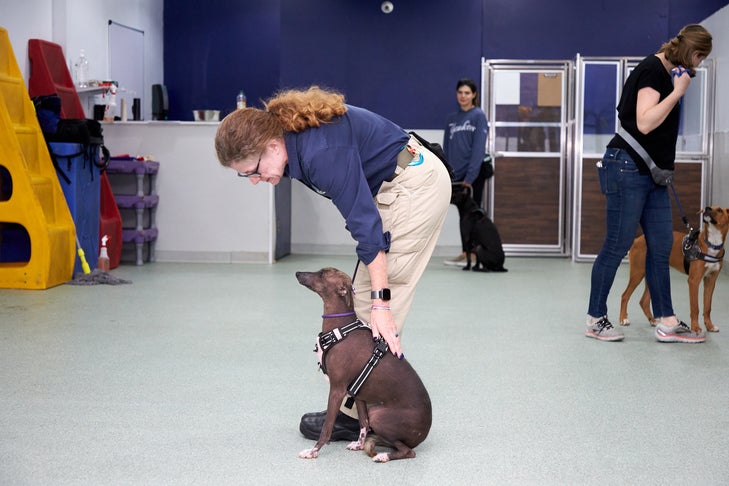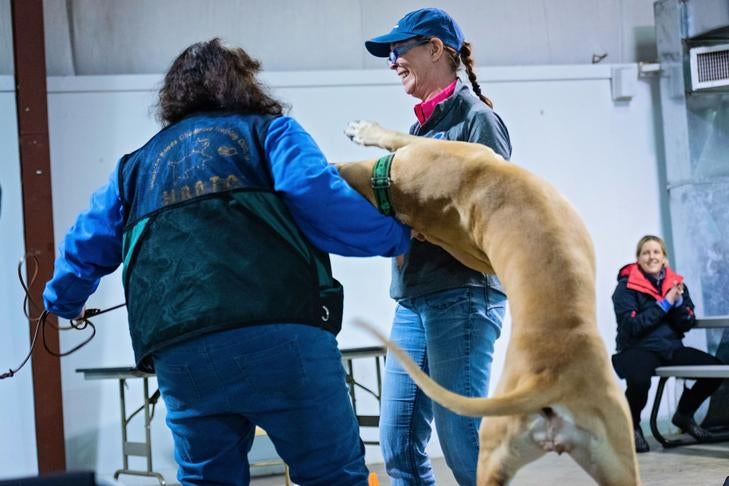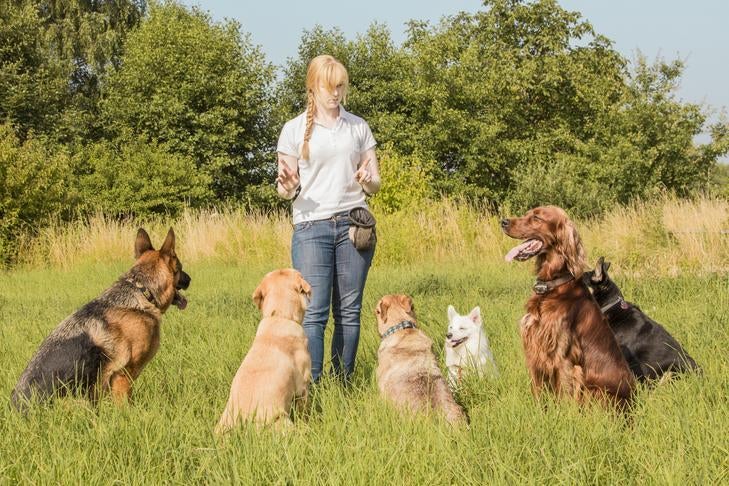Working with dogs can be wonderful, as well as frustrating and stressful. If you find yourself getting overwhelmed and having to deal with training frustrations, it’s important to try to shift your perspective. This way, you can manage these challenging emotions in a healthy way and preserve your relationship with your dog.
Deciding When to Train
It’s helpful to have a routine, but equally important is to take your mood into account when making a dog training schedule. Try to train your dog when you’re feeling calm and relaxed. You don’t want to inadvertently communicate negative emotions to your dog, which could stress them out. Similarly, hold off on dog training homework until you’ve had the chance to destress a bit.

Remember: Your Dog’s Behavior Doesn’t Define You
Dog training isn’t always easy, but time spent training your dog is never wasted. Dogs are individuals and learn at different paces. Try to avoid getting frustrated if another dog in your training class has mastered a skill more quickly than your pet. Though it’s easy to feel that your dog’s behavior is a direct reflection of you, this isn’t the case. The speed at which your dog learns skills does not determine your self-worth as an individual or a trainer.
Try to reframe your frustration as a puzzle or fun game for you and your dog to work on together. You might not solve master each complicated skill today, but you and your pet can sure enjoy yourselves trying!
What to Do When Training Sessions Go Awry
Dogs are naturally inclined to be highly attuned to their handler’s emotions. Some dogs may shut down if they think their owners are upset. Other pets may respond by getting more distracted than usual. Other dogs will seemingly mirror their owners’ moods and get irritated.

Training while frustrated isn’t productive for you or your dog, so take a break. Even if your dog seems to be “acting out” or not performing to their capabilities, you want to keep your mood positive and encouraging, rather than scolding or punishing your pet.
How to Handle Stress in the Moment
If you sense your training session going awry, try to do a quick reset. Instead of continuing to work on the skill or exercise that you’re struggling with, give your dog a cue that they know well. When your dog does that behavior, treat and praise your dog.
Continue to work on skills at which your dog excels, shifting the mood from negative to positive; quick success can help you and your dog regain your confidence. If you’re able to shift back to a positive mindset, slowly begin working back up to increasingly complicated skills with your dog.
Take a Break
If you can’t shift your emotions in the moment, it’s important to stop the training session. Ask your dog to do a very simple cue they know well; alternatively, toss them a treat and encourage your pet to get it, then praise your dog and take a break. Make sure your dog is comfortable, then take some time for yourself alone.

If you find yourself regularly getting frustrated, consider whether your expectations are too high. We also recommend reaching out to your dog trainer. They’ll offer help and advice about how to restructure your training sessions to make them more enjoyable and successful for you and your dog.

